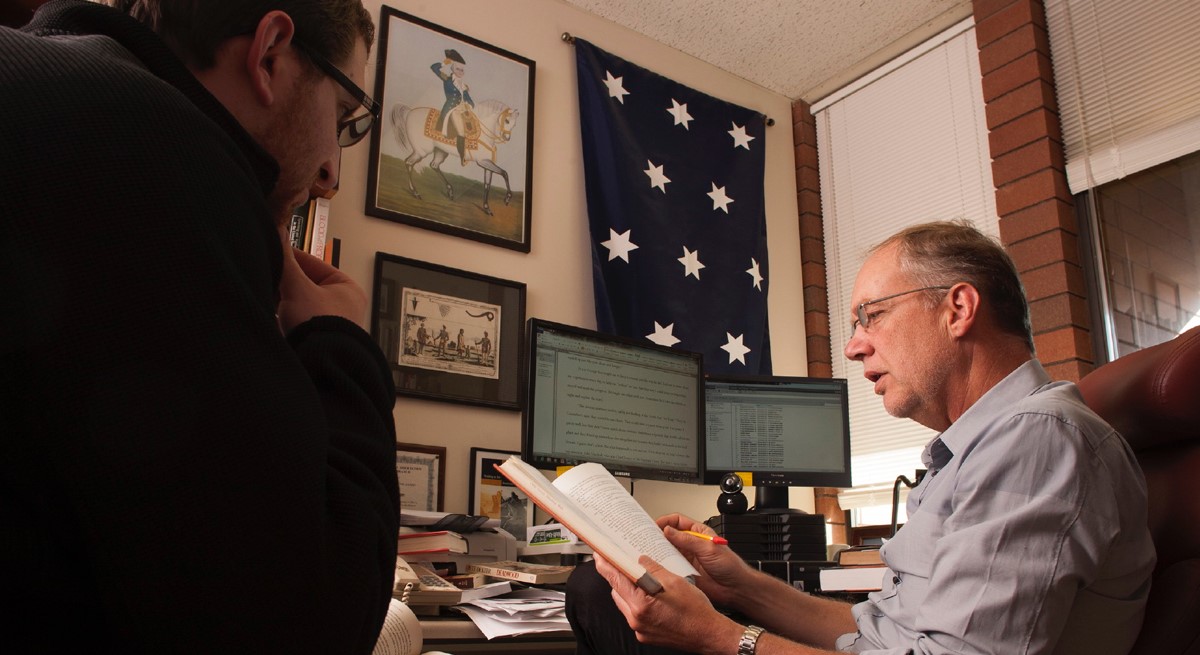
History
Resources
Entering the History Department, you are immediately awash in a wealth of resources. A step further, you find a reading room bathed in soft light, designed to facilitate the quiet reflection required for deep historical study. And then there are the people: the departmental staff, always ready to assist with research inquiries; your fellow students, eager for collaborative study sessions; and of course, the faculty members, who are not just lecturers, but mentors, leading you along your academic path, challenging your ideas, and fostering your growth as a historian. Here in the History Department, resources are abundant, beckoning you to explore and learn.
Transfer Students
Many of our history majors and minors transfer in from other universities or from community colleges. The transfer process is usually quite seamless, but here are a few tips and suggestions to make the transfer easier.
- Declare a major or minor as early as possible. This will get you into the system as a history major or minor and will get you assigned to an advisor.
- If you are transferring in as a History Social Studies Teaching major, please check with the School of Education regarding their admissions policies, prerequisites, and timetables.
- The lower-division US history sequence (usually number HIST 146, 147, 148 at Washington community colleges) corresponds to our HIST 143 and HIST 144. The lower-division world history sequence (usually numbered HIST 126, 127, and 128 at Washington community colleges) corresponds to our HIST 101, 102, and 103.
- We also accept Western Civilization (usually numbered HIST 116, 117, 118 at Washington community colleges) in lieu of World History for students transferring from those colleges that still offer Western Civilization.
- Students transferring from semester-based schools should be aware that 3-credit semester classes transfer to CWU as 4.5 credits. You still only have to take four lower-division classes, even if they don't add up to 20 credits because of transfers. The additional credits can be made up through upper-division electives.
- Our department does not generally accept 100 or 200-level classes taken at community colleges or other universities as substitutions for upper-division major or minor requirements.
- Keep CWU's residency requirements in mind. The CWU catalog states "Students must study on the university campus, through CWU online courses, or at an established university center for at least three quarters and earn a minimum of 45 credits. Credits earned through industrial experience, military experience, or through credit by examination may not be used to meet residency requirements... A transfer student must earn a minimum of 10 credits in the major and, if a minor is declared, 10 credits in the minor from CWU."
- Most of our upper-division courses (with the exception of Pacific Northwest History and US Military History) are offered once every two to three years. So, if there is a course that interests you, sign up rather than wait.
- Most importantly, get to know your professors and classmates. We're all happy to answer any questions you might have!
CWU News

CWU women’s rugby team earns six All-American selections
May 13, 2024
by University Relations

CWU Board of Trustees to Convene this week
May 13, 2024
by University Relations